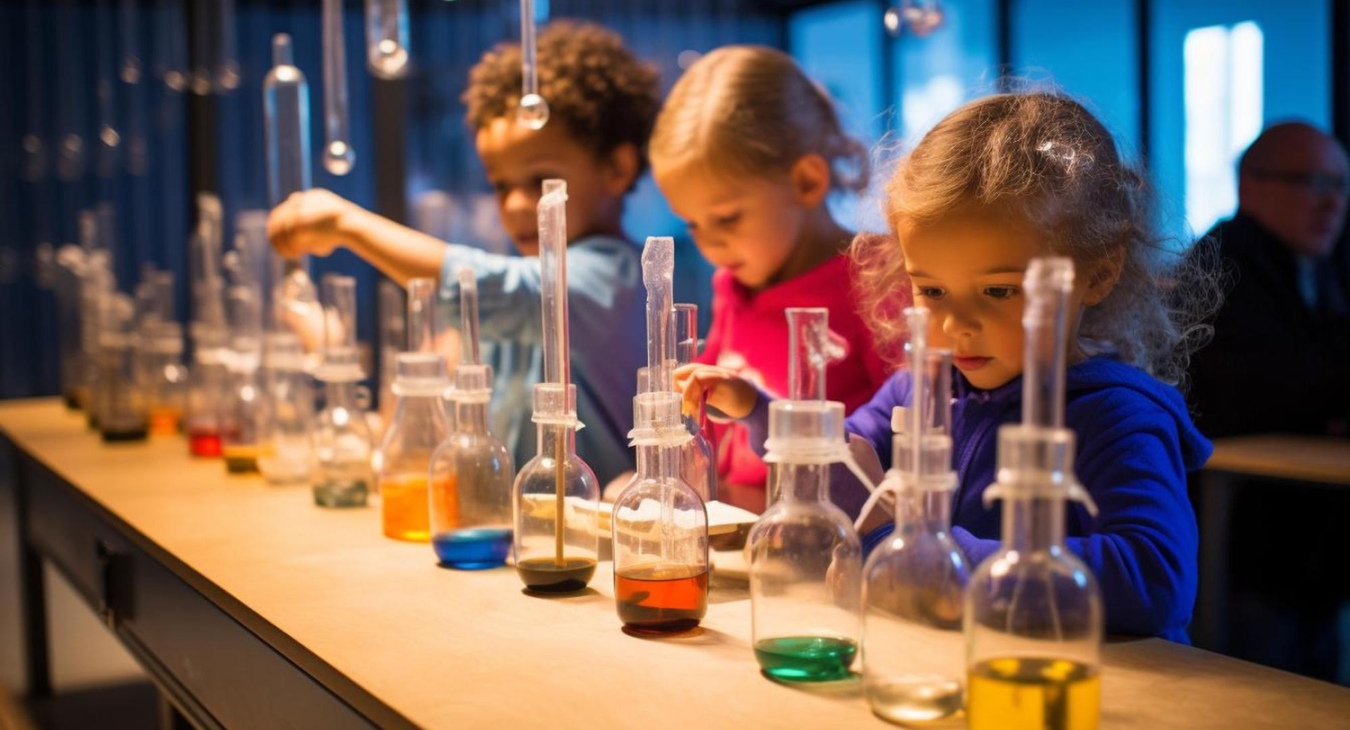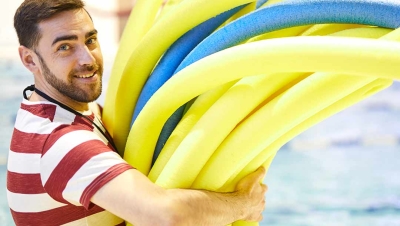Doubling the Largest U.S. Science Playground
Play is such a valuable part of growing up. It is through play that children develop physically, socially, emotionally, and intellectually. Let's not forget the benefits of play in brain development. There are all kinds of playgrounds out there, and one facet of brain development in play is exercised by incorporating science into play. Hands-on exhibits are a great way to get children involved and stimulate brain development.
Imagine 60,000 square feet of fun with 50 hands-on exhibits of fun for children. The New York Hall of Science offers the largest U.S. Science playground, but double in size. Just get to Queens, NY, and you'll have a chance to take a trip down a rabbit hole into the 30,000-square-foot preschool addition. It includes shelters, mirrors, sand, and music, just to name a few of the additions. "This rich and playful new addition will serve the Hall's increasing number of family visitors with preschool-age children," said Hall President and CEO Marilyn Hoyt. "Children of all ages can have fun while learning fundamental science that will serve them well as they grow into their school years through interactive experiences in the expanded Science Playground."
Led by BKSK Architects, the $2.7 million expansion begins with the notion that all children's play is learning and invites inquiry through exploration, discovery, and hands-on experimentation. Landscape is the organizing element, complementing the earlier section's focus on principles of physics. The hills, valleys, shrubs, and deciduous and evergreen planting will become an integral part of the sensory experience.
So what else does it include? Here are a few of the new exhibit areas:
Bridge Path
Meandering through and managing the landscape: Man-made hills allow children to play in a safe, scaled environment, learning how to master their environment and the physical challenges it presents. Two footbridges, a Snake Path, and Timber Obstacle Climb allow visitors to compare differing vantage points.
Shelter Path
Making shelter in the landscape: Children explore the concept of inside and outside, light and dark, open and closed. Alone or in groups, children can play in a giant Rabbit Hole or an Interactive Nest. Other components include a Sunshade House, an In/Out House, and a Peek-A-Boo Playhouse.
Sand Path
Modifying the landscape: Three Sandboxes (one with a sand conveyor) and a Mushroom Pump let children become builders in an environment where materials can change shape and consistency. By working with other children to create new forms, children also have the opportunity for socialization and role-playing.
Mirror Path
Mirroring the landscape: Colored glass and mirrors transform the landscape, enhancing colors and allowing children to see themselves and the landscape reflected in different ways.
Exhibit components include a Glass Tunnel, a Blue Sky House, Colored Glass Partitions, and Mirror Walls.
Music Path
Making music in the landscape: The Music Path encourages children to explore the music in nature and make their own special sounds with African, Asian, and Caribbean drums. A sophisticated mechanism embedded in the ground creates a deep, water mist to shroud the path in mystery.
Major capital support for this project was provided by the Office of the Queens Borough President, the Honorable Helen M. Marshall, through the New York City Department of Cultural Affairs, Commissioner Kate D. Levin. Construction was managed by the New York City Department of Design and Construction, Commissioner David J. Burney, AIA.
The purpose of the New York Hall of Science is to bring the excitement and understanding of science and technology to children, families, teachers, and others by galvanizing their curiosity and offering them creative, participatory ways to learn.
If you haven't incorporated science into play, you're missing out. Playgrounds are a place of learning and growth in many different ways.



















Add new comment